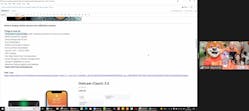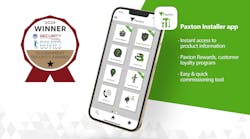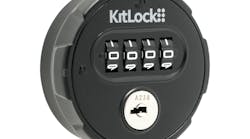Providing security is always Job One for locksmiths, but what about when it comes to your own security?
Rob Reynolds, director of operations for Pop-A-Lock, says locksmiths have several options for protecting themselves when out on a job. In light of a few recent high-profile crimes against locksmiths, Reynolds made several suggestions during the latest meeting of Locksmiths United.
“This needs to get out there to the people,” said Wayne Winton, founder of Locksmiths United. “This is life safety amd not an ADA-compliant life safety, but YOUR life safety.”
Driving Ahead
Of course, before you can be concerned about your safety on the job, you actually have to get to the job first. Distracted drivers on their phones are a big problem, but the distracted driver also could be you, Reynolds said.
The way to get around that is by implementing a message system on your business phone, so when a customer calls, instead of you hearing a ring, the caller gets a recorded message requesting a text of certain information. A second tier would involve the caller receiving a text to a link that would allow them to fill out a form for their information.
This would accomplish two things, Reynolds said:
- It would prevent locksmiths from answering their phone or looking at their phone while they were driving.
- It would create a log that would include the customer’s name, address and contact information, which also would help to improve business efficiency.
“If someone electronically requests service, there’s going to be more of a connection to that person,” Reynolds said. “Most phone systems will let you do this. It doesn’t have to go to a super-fancy site — just basic information that you need.”
And as Winton pointed out: “You’re one notification away from getting killed.”
Lights, Camera, Action
A few common-sense actions can help to prevent crime, such as securing work trucks during off hours, either by parking them indoors or putting secure fencing around them. Winton also suggested not advertising that your truck is a work truck by not including any wrapping on the exterior.
Whenever possible, you should park your vehicle in a well-lighted area that has decent traffic, which, of course, isn’t always possible for locksmiths in certain locations. So Reynolds suggested rigging up cameras in the van, on the van and on you.
He uses a hard-wired system that includes four external-mounted cameras that sends video to the cloud and sends notifications of the truck’s location.
“You should set up a distribution email that goes to your shop, your shop manager, someone you trust, your spouse, so if something happens, someone will get that notification,” he said. And you should advertise that clearly on your truck. Reynolds said signage should indicate that “Live Video” is onboard and that it’s being monitored, either by someone or that it’s streaming online.
Reynolds further suggested getting a body cam that’s clearly visible and obvious to anyone, and, finally, a panic button that, when pressed, alerts authorities that a crime is taking place. This even could take the form of a safety app that when you, say, shake your phone, it sends an emergency message.
Reynolds said with regard to expenses, his system, which includes continuous loop recording, two-way hands-free communication capability and panic-button integration cost $500 upfront for the equipment and $250 per year for cloud storage.
Don’t Go It Alone
There’s strength in numbers, and Reynolds said one thing that Pop-A-Lock is able to do in some areas is have two people in a work truck at once — typically a technician and a trainee.
He acknowledged that this is difficult if not impossible for most locksmiths, so you could request assistance from a law enforcement officer if a situation is particularly dicey, such as a lockout during a domestic dispute or where alcohol or illicit drugs might be present. This isn’t a matter of calling 911, he said, but from building relationships ahead of time.
“If you show up when they need you, you can build up that relationship over time,” Reynolds said, adding that he also works with tow truck drivers in certain situations.
And, finally, Reynolds and Winton agreed that in some scenarios, a policy could even promote safety. Reynolds used the scenario of someone refusing to pay for a lockout and threatening violence if the locksmith tried to collect on the spot. The policy, he said, should be to de-escalate the situation, because a technician trying to collect who then gets hurt could expose the business to liability.
“If you have it set in their head that ‘I got to get that money,’ you’re an idiot,” he said, adding that $70 or $100 isn’t worth the risk of an altercation.
Winton agreed, saying he tells his technicians, “There is no dollar amount worth getting into an altercation for. It’s my job as the owner to collect the money.”
Go here for a video of the meeting.
Locksmiths United
Locksmiths United is a monthly Zoom presentation to discuss locksmithing and provide information to others in the industry. The meeting is scheduled for 7 p.m. ET, the first Monday of each month. All locksmiths are invited. Contact Winton via Locksmith Nation’s group page on Facebook for the Zoom link.







